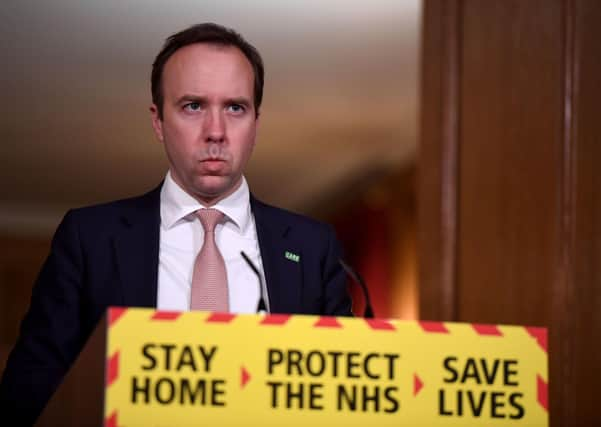Is NHS now as indebted to us as we are to it? – David Behrens


Mrs B went out to see a collared dove reeling, stunned but uninjured, from a brush with a red kite. She scooped it up and placed it in a shoebox with a cup of water – not a moment too soon, because the kite returned and gave her a look more evil than any I would have dared throw in her direction.
The immediate danger over, she looked up bird sanctuaries and found one 15 minutes away. It had closed for the night but someone answered an out-of-hours number and invited us to take the dove there next morning.
Advertisement
Hide AdAdvertisement
Hide AdIt was a quicker outcome than most human patients can expect these days.


The numbers of people waiting for treatment on the NHS will, in all probability, soon outstrip those actually being treated. By this time next year, 14m of us are likely to be in a queue and the figure shows no sign of levelling out.
In Hull alone, the waiting list for routine hip replacements has increased by a third in the last two years. Further up the emergency scale, the number of patients needing cardiac surgery could soon reach nearly double the pre-pandemic figure, according to the British Heart Foundation.
A GP surgery’s appeal: We’ve never been busier, please show us some respect – Yorkshire Post Letters
Advertisement
Hide AdAdvertisement
Hide AdAt the same time, and perhaps not coincidentally, tempers are becoming frayed. A third of GPs report having faced abuse from their patients as they began to reopen their surgeries – a state of affairs that forced the British Medical Association this week to beseech us to “be kind” to health workers.
Yet it is barely a year since the people now letting fly at their doctors were presumably among the millions standing on their doorsteps every Thursday evening to cheer and bang saucepans in support of the NHS. What has changed them from defenceless doves into menacing birds of prey?
Could it be that the health service we all hunkered down to protect is not as saintly as we allowed ourselves to believe? Or have our expectations of it risen in light of the privations we underwent on its behalf? Is it now as indebted to us as we are to it?
The usual diagnosis at times of extreme pressure within the system is a large injection of money, and clearly that’s a course of treatment that will not go amiss here. But more important than the amount is the way in which it will be spent – for the health service is historically as bereft of good housekeeping as it is of cash.
Advertisement
Hide AdAdvertisement
Hide AdThis is surprising given the number of administrators it employs. At GP surgeries across England – the very ones at which anger is boiling over – there are currently around 70,000 clerical staff but only half as many doctors. Even if you factor in nurses, paramedics and other medical staff within GP practices, the number of clerks far outstrips them.
It’s a similar picture in hospitals. According to the NHS’s own figures for Yorkshire, averaged across the various health trusts, only 41 per cent of staff are professionally qualified clinicians.
That is not to say, of course, that the other roles are unnecessary or unimportant, nor that the people in them have not been working under extraordinary pressure during the last 18 months. Nevertheless, the headline statistics are jarring. No other sector – not even a government department – would sign off on such a high proportion of non-core staff.
Advertisement
Hide AdAdvertisement
Hide AdBut the health service has always been beset by officialdom. Indeed, the quota culture imposed on it in the late 1990s probably made it worse.
Yet it seems unwilling to learn from the communities it serves – a dislikable trait that has manifested itself most recently in Huddersfield, where officials are pushing ahead with unpopular plans to move services to Halifax. It was there this week that one local councillor, Colin Hutchinson, put his finger on why the funding pot is such a bottomless pit. “I don’t understand why we’re able to produce accounts that specify how much has been spent on this service or that service, and yet we’re unable to tell what benefit has occurred from that spending,” he said.
Injecting money directly into the root of the pain is indeed the magic cure but we are no closer to finding it. And by the time we do, the waiting lists may be so long that the best we can hope for is to be stuffed into a shoebox with a cup of water.
Advertisement
Hide AdAdvertisement
Hide AdSupport The Yorkshire Post and become a subscriber today. Your subscription will help us to continue to bring quality news to the people of Yorkshire. In return, you’ll see fewer ads on site, get free access to our app and receive exclusive members-only offers. Click here to subscribe.
Comment Guidelines
National World encourages reader discussion on our stories. User feedback, insights and back-and-forth exchanges add a rich layer of context to reporting. Please review our Community Guidelines before commenting.